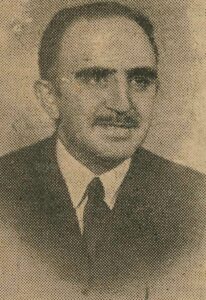Entre la realidad y el deseo: el desarrollo de la ingeniería óptica en España (1920-1936)/strong>
Llull, 2022, vol. 45, nº 91
Between reality and desire: The development of optical engineering in Spain (1920-1936)
Sergio Barbero Briones
Resumen
La ingeniería óptica, entendida como una rama de la ingeniería dedicada a los instrumentos ópticos, surgió en la Alemania de finales del siglo XIX. Los cimientos para el desarrollo de la ingeniería óptica en España tuvieron que esperar a la segunda década del siglo XX. La iniciativa coordinada de algunos ingenieros industriales civiles y técnicos militares, a quienes caracterizamos con la noción sociológica de ‘comunidad epistémica’, fue lo que posibilitó este desarrollo.
Se analizan las motivaciones, influencias, formación y herramientas organizativas que permitieron a esta ‘comunidad epistémica’ conformar la nueva ingeniería en España. El común denominador de los principales promotores de esta comunidad epistémica fue el hecho de que todos hubiesen adquirido su formación técnica en el extranjero; en particular en Francia y, en menor medida, en Alemania. Lo aprendido y asimilado en estas estancias internacionales sirvió para, por un lado, impulsar la transferencia de conocimiento tecnológico y, por otro lado, e igualmente importante, la emulación de modelos organizativos. Así se articuló un movimiento asociativo, formalizado en la Revista Española de Óptica, crucial para la instauración de los primeros estudios oficiales en ingeniería óptica y graduado en óptica, precursor de los estudios de optometría.
Abstract
Optical engineering, understood as a branch of engineering dedicated to optical instruments, emerged in Germany at the end of the 19th century. The foundations for the development of optical engineering in Spain had to wait until the second decade of the 20th century. The coordinated initiative of some civilian industrial engineers and military technicians, whom we characterize with the sociological notion of epistemic community, was what made this development possible. We analyze the motivations, influences, training and organizational tools that enabled this epistemic community to shape the new engineering in Spain. The common denominator of the main promoters of this ‘epistemic community’ was the fact that they had all acquired their technical training abroad, particularly in France, and, to a lesser extent, Germany.
What was learned and assimilated during these international stays served, on the one hand, to promote the transfer of technological knowledge, on the other hand, and equally important, the emulation of organizational models. This led to the creation of an associative movement, formalized in the Revista Española de Óptica, which was crucial for the establishment of the first official studies in optical engineering and optics graduate, forerunner of optometry studies.
Palabras clave
Ingeniería óptica; Historia Ingeniería; Historia Contemporánea.
Keywords
Optical engineering; history of engineering; contemporary history.


